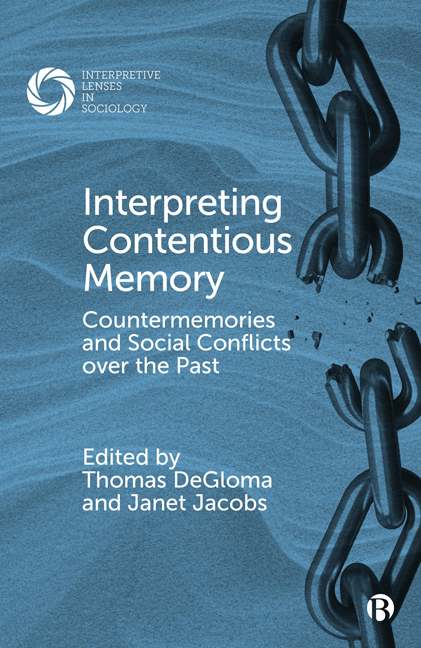Book contents
- Frontmatter
- Contents
- Series Editors’ Preface: Interpretive Lenses in Sociology – On the Multidimensional Foundations of Meaning in Social Life
- Notes on Contributors
- Acknowledgments
- 1 Introduction: Interpreting Contentious Memories and Conflicts over the Past
- PART I Interpreting Memories in the Social Dynamics of Contention
- PART II Racism, Exclusion, and Mnemonic Conflict
- PART III Genocide, Memory, and the Historicizing of Trauma
- Index
Series Editors’ Preface: Interpretive Lenses in Sociology – On the Multidimensional Foundations of Meaning in Social Life
Published online by Cambridge University Press: 20 January 2024
- Frontmatter
- Contents
- Series Editors’ Preface: Interpretive Lenses in Sociology – On the Multidimensional Foundations of Meaning in Social Life
- Notes on Contributors
- Acknowledgments
- 1 Introduction: Interpreting Contentious Memories and Conflicts over the Past
- PART I Interpreting Memories in the Social Dynamics of Contention
- PART II Racism, Exclusion, and Mnemonic Conflict
- PART III Genocide, Memory, and the Historicizing of Trauma
- Index
Summary
Sociology is an interpretive endeavor. Whatever the approach taken to study and explain an aspect of social life – qualitative or quantitative, micro or macro – sociologists work to interpret their data to reveal previously unseen, or to clarify previously misunderstood, social forces. However, within the broad field of sociology, and under the purview of its kindred disciplines, there are many scholars who work to unpack the deep structures and processes that underlie the meanings of social life. These interpretive scholars focus on the ways that social meanings constitute the core structures of self and identity, the ways that individuals negotiate meanings to define their shared situations, and the collective meanings that bind people together into communities while also setting any given group or context apart from others. From this perspective, meaning underscores social mindsets and personal orientations in the world, as well as the solidarities and divisions that define the dynamics and mark the boundaries of our social standpoints and relationships. Furthermore, such scholars are concerned not only with how the individuals and groups they study actively make and remake the definitions that are central to their lives, as well as how those understandings influence their behaviors, but also how they seek to impact the world with their meaning-making processes. In this regard, meaning is of paramount significance to both the extraordinary moments and the routine circumstances of our lives.
In their efforts to illuminate the deep social foundations of meaning, and to detail the very real social, political, and moral consequences that stem from the ways people define and know the world around them, interpretive scholars explore the semiotic significance of social actions and interactions, narratives and discourses, experiences and events. In contrast to those who take a positivist or realist perspective and see the world – or, more precisely, argue that the world can be known – in a more direct or literal light,3 they use various approaches and draw on different interpretive traditions to decipher their cases in order to better understand the deep social, cultural, and psychic foundations of the phenomena they study.
- Type
- Chapter
- Information
- Interpreting Contentious MemoryCountermemories and Social Conflicts over the Past, pp. vii - xiPublisher: Bristol University PressPrint publication year: 2023

